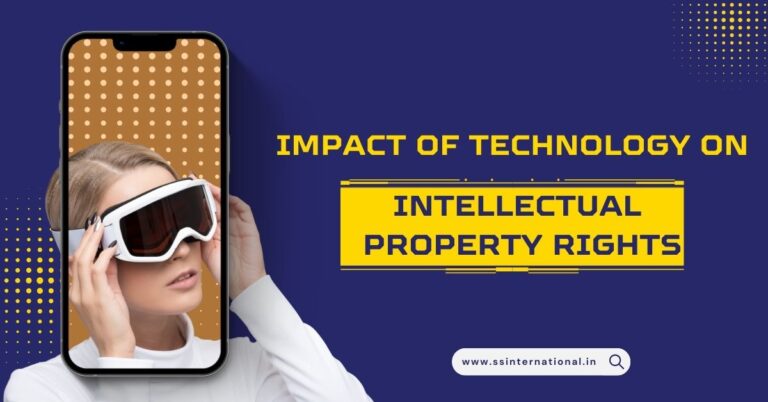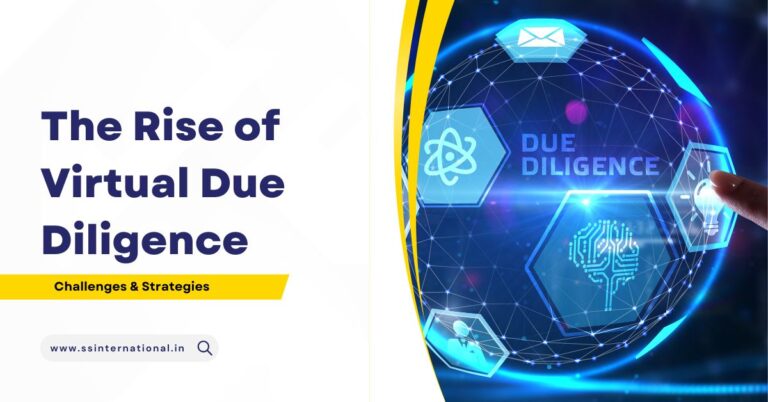The world of intellectual property (IP) law is undergoing a major transformation, driven by advancements in blockchain technology and artificial intelligence (AI). As the digital age accelerates, businesses and creators face increasing challenges in managing copyrights, trademarks, and other forms of IP in a global, fast-paced market. Emerging technologies are offering new solutions to these challenges by streamlining IP processes, enhancing security, and even automating critical tasks.
Blockchain, known for its ability to create decentralized and immutable records, is making copyright and trademark registration more transparent and secure. Meanwhile, AI and machine learning (ML) are revolutionizing how IP is managed, from detecting infringement to speeding up registration processes. These technologies are not only reshaping how IP rights are protected but are also pushing the boundaries of how IP law is practiced.
This blog explores the impact of blockchain and AI on intellectual property law, focusing on how they are changing the way copyrights and trademarks are registered and enforced, as well as the legal and ethical implications of these innovations.
Blockchain Technology and Its Impact on Copyright and Trademark Registration
Blockchain, a decentralized digital ledger system, is increasingly being recognized for its ability to revolutionize the process of copyright and trademark registration. At its core, blockchain technology offers transparency, immutability, and security—making it a powerful tool for managing intellectual property rights.
One of the key advantages of blockchain is its ability to create transparent ownership records. By storing copyright and trademark data on a blockchain, creators and businesses can prove ownership of their intellectual property with a clear, time-stamped digital record. This feature reduces the chances of disputes over originality and makes it easier to verify ownership across jurisdictions.
Another significant impact of blockchain is the ability to generate immutable timestamps. When IP rights are registered on a blockchain, each entry is time-stamped and stored in a way that cannot be altered or deleted. This eliminates the possibility of fraudulent claims and provides undeniable proof of when a copyright or trademark was established. For creators, this means better protection of their work, especially in industries prone to piracy or unauthorized usage.
Blockchain also offers the potential to track and protect intellectual property more effectively. In the case of copyrighted material, for instance, blockchain can be used to monitor and track digital assets across the internet. Unauthorized use or infringement of copyrighted content can be detected and flagged in real-time, giving creators more control over their works.
Trademarks benefit in similar ways. Blockchain can provide an unchangeable record of trademark ownership and use, reducing the risk of infringement and ensuring that businesses can defend their brand assets. Moreover, the global nature of blockchain allows for more efficient cross-border trademark protection, something that traditional systems often struggle to achieve.
Challenges of Implementing Blockchain in IP Registration
While blockchain technology holds great promise for transforming intellectual property (IP) registration, its implementation faces several challenges. Both legal and technical barriers must be addressed for blockchain to become a widespread solution in the world of IP.
One of the primary challenges is cross-jurisdictional enforcement. Copyrights and trademarks are governed by different laws in various countries, and integrating blockchain into these diverse legal systems is complex. Although blockchain can create a unified global record, enforcing intellectual property rights across borders remains difficult. National and international laws would need to adapt to recognize blockchain-registered IP rights as legally valid in multiple jurisdictions, which could take years to develop and standardize.
Another significant issue is regulatory acceptance. Many legal systems are still unfamiliar with blockchain and may not yet trust or recognize it as a legitimate tool for IP registration. Governments and regulatory bodies would need to establish frameworks that allow blockchain-registered copyrights and trademarks to be accepted in courts of law. This process could involve new laws or amendments to existing ones, which will likely require extensive legal reform.
There are also technical challenges related to the scalability and accessibility of blockchain systems. Blockchain networks can be resource-intensive, especially for smaller organizations or individual creators. The cost of setting up and maintaining blockchain systems might be prohibitive for some, creating a barrier to entry for those who could benefit from it the most. Additionally, the technology requires technical expertise, which may not be readily available to all creators or small businesses looking to register their IP.
Another challenge is the potential for fragmentation. As more industries and organizations explore blockchain for IP registration, multiple competing blockchain platforms could emerge, leading to fragmented systems. If different platforms don’t communicate or integrate with one another, it could create confusion and limit the potential for blockchain to become a truly global solution for IP management.
While blockchain is poised to revolutionize IP registration, its full potential will only be realized if these challenges are addressed through collaboration between legal, technical, and regulatory bodies.
The Role of Artificial Intelligence and Machine Learning in Intellectual Property Law
As intellectual property (IP) management becomes increasingly complex, artificial intelligence (AI) and machine learning (ML) are stepping in to streamline processes and improve accuracy. These technologies are being integrated into various aspects of IP law, from analyzing vast amounts of data to detecting potential infringements more efficiently.
One of the key roles AI and ML play is in IP detection and enforcement. Traditional methods of detecting copyright or trademark infringement can be slow and labor-intensive. However, AI-powered tools can rapidly scan the internet, databases, and other digital platforms to identify unauthorized use of copyrighted material or potential trademark violations. This automated monitoring not only saves time but also ensures a more comprehensive search, covering a larger scope than manual methods could achieve.
In the world of patent law, AI and ML are used to improve patent analytics. AI-driven systems can analyze existing patents, prior art, and technical documents to help businesses determine whether their inventions are truly novel. This helps to speed up the patent application process, reducing the chances of rejection due to existing patents. AI tools can also help identify trends and predict the likelihood of a successful patent application by analyzing past cases and legal outcomes.
For trademark registration, AI is helping to automate trademark searches. AI-powered platforms can quickly analyze global trademark databases to ensure that a new trademark doesn’t infringe on existing ones. This speeds up the approval process and reduces the chances of legal conflicts after registration.
Another area where AI and ML are transforming IP law is in predictive legal analytics. By analyzing vast amounts of legal data, AI can predict outcomes of IP disputes, helping businesses assess their chances of success in litigation. This allows companies to make more informed decisions on whether to pursue legal action or settle disputes out of court.
Overall, the role of AI and ML in IP law is to reduce human error, improve efficiency, and provide businesses with actionable insights that would be difficult to achieve through traditional methods. As these technologies continue to evolve, they are set to play an even larger role in the future of IP management.
AI-Powered IP Management Tools
With the rise of artificial intelligence (AI) and machine learning (ML), a new generation of IP management tools has emerged, designed to simplify and automate the protection of intellectual property. These tools are helping businesses and legal professionals handle various aspects of IP law more effectively, from prior art searches to brand monitoring and copyright detection.
Patent Management:
- PatSnap and Innography: These platforms continue to be widely used for patent searches, analysis, and trend identification. They leverage AI algorithms to process vast datasets and provide valuable insights for businesses.
- AI-powered patent search: AI has significantly improved the efficiency of patent searches, allowing businesses to quickly identify relevant prior art and assess the novelty of their inventions.
Trademark Management:
- TrademarkNow and CompuMark: These tools remain popular for trademark searching and registration. They use AI to scan global databases and identify potential conflicts, helping businesses avoid legal issues.
- AI-driven trademark search: AI has streamlined the trademark search process, making it faster and more accurate.
Copyright Protection:
- Pixsy and Copytrack: These platforms continue to be effective for copyright infringement detection and enforcement. They use AI to monitor online platforms for unauthorized use of copyrighted content and assist creators in taking legal action.
- AI-powered copyright monitoring: AI has made it easier for creators to protect their content from unauthorized use.
Legal Analytics:
- ROSS Intelligence: This tool remains a valuable resource for legal professionals. It uses AI to analyze case law, legislation, and regulatory guidelines, providing insights to help lawyers develop stronger arguments and predict case outcomes.
- AI-driven legal research: AI has transformed legal research, making it more efficient and effective.
Overall, AI-powered IP management tools have become essential for businesses and legal professionals. They offer significant benefits such as increased efficiency, accuracy, and strategic insights. As AI continues to advance, these tools are likely to become even more powerful and sophisticated, further revolutionizing the field of IP management.
Ethical and Legal Implications of AI in Intellectual Property
While artificial intelligence (AI) and machine learning (ML) are revolutionizing intellectual property (IP) management, their growing role also raises significant ethical and legal questions. As these technologies become more prevalent, businesses, creators, and legal professionals must consider how AI intersects with ownership, authorship, and fairness in the IP space.
One of the most pressing concerns is the issue of AI-generated content. AI is now capable of creating original works, including artwork, music, and even written content. This raises the question: who owns the copyright to AI-generated content? Traditionally, copyright law has been clear that only works created by human authors can be protected. However, as AI becomes more autonomous, there is a growing debate about whether AI-generated works should receive copyright protection and, if so, who holds the rights—the developer of the AI, the user, or the AI itself? These legal gray areas remain largely unresolved, and courts around the world are starting to see cases challenging traditional notions of authorship.
Another ethical issue is bias in AI algorithms. Machine learning models rely on large datasets to “learn” patterns, but if the data used to train these models is biased, the resulting IP management tools may also reflect these biases. For example, an AI-powered trademark search tool might miss certain marks because its training data disproportionately favors certain industries, regions, or languages. This could lead to discriminatory outcomes in IP registration and enforcement, disadvantaging certain groups or markets.
The role of AI in IP enforcement also brings up legal questions. AI-driven platforms that monitor copyright infringements or trademark violations can sometimes make errors, flagging legitimate use as infringement. These “false positives” can lead to legal disputes, wasted resources, and reputational damage for businesses. Additionally, AI systems used in legal settings, such as predictive analytics for court cases, raise concerns about transparency and accountability—who is responsible if an AI system makes an incorrect or unfair decision?
There are also broader ethical considerations surrounding the use of AI in intellectual property. As AI becomes more integrated into IP law, there is concern that over-reliance on automation could undermine human expertise and decision-making. Legal professionals worry that if AI tools are used too extensively, the nuances of IP law may be overlooked in favor of algorithmic efficiency, potentially leading to unjust outcomes.
In response to these challenges, regulators and policymakers will need to develop new frameworks to address the ethical and legal implications of AI in IP law. This could involve creating clearer guidelines on AI-generated content, ensuring transparency in AI decision-making, and holding developers accountable for the biases or errors in their algorithms.
Conclusion: Embracing Technological Innovation in IP Law
The convergence of blockchain, artificial intelligence (AI), and machine learning (ML) is transforming the way intellectual property (IP) is registered, protected, and enforced. These technologies are not just making IP management faster and more efficient—they are also offering a new level of transparency and security that was previously unattainable.
Blockchain technology has the potential to revolutionize copyright and trademark registration, providing immutable records and streamlined, cross-border protection. At the same time, AI and ML are bringing unprecedented capabilities to IP analytics, from automating patent searches to identifying infringement in real-time. Together, these innovations are making IP law more accessible to businesses of all sizes, allowing for better protection of intellectual assets in a rapidly digitizing world.
However, the adoption of these technologies also raises important ethical and legal questions. As AI begins to generate its own content and make decisions in IP management, regulators will need to establish clear guidelines on ownership and accountability. Furthermore, ensuring fairness and transparency in AI algorithms is critical to preventing bias and unjust outcomes.
The future of IP law will depend on the ability of legal frameworks to adapt to these technological advances. As blockchain, AI, and ML continue to evolve, businesses, creators, and legal professionals must embrace these tools to stay ahead in a world where intellectual property is one of the most valuable assets. For companies and individuals alike, staying informed and ready to adopt these innovations will be crucial in navigating the future of intellectual property law. The challenge ahead is not only in understanding the potential of blockchain and AI but also in shaping the legal systems that can support their full integration.




